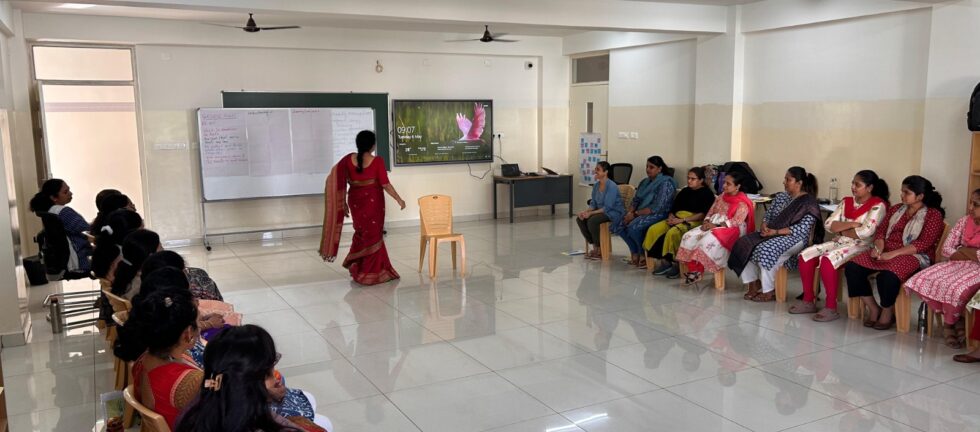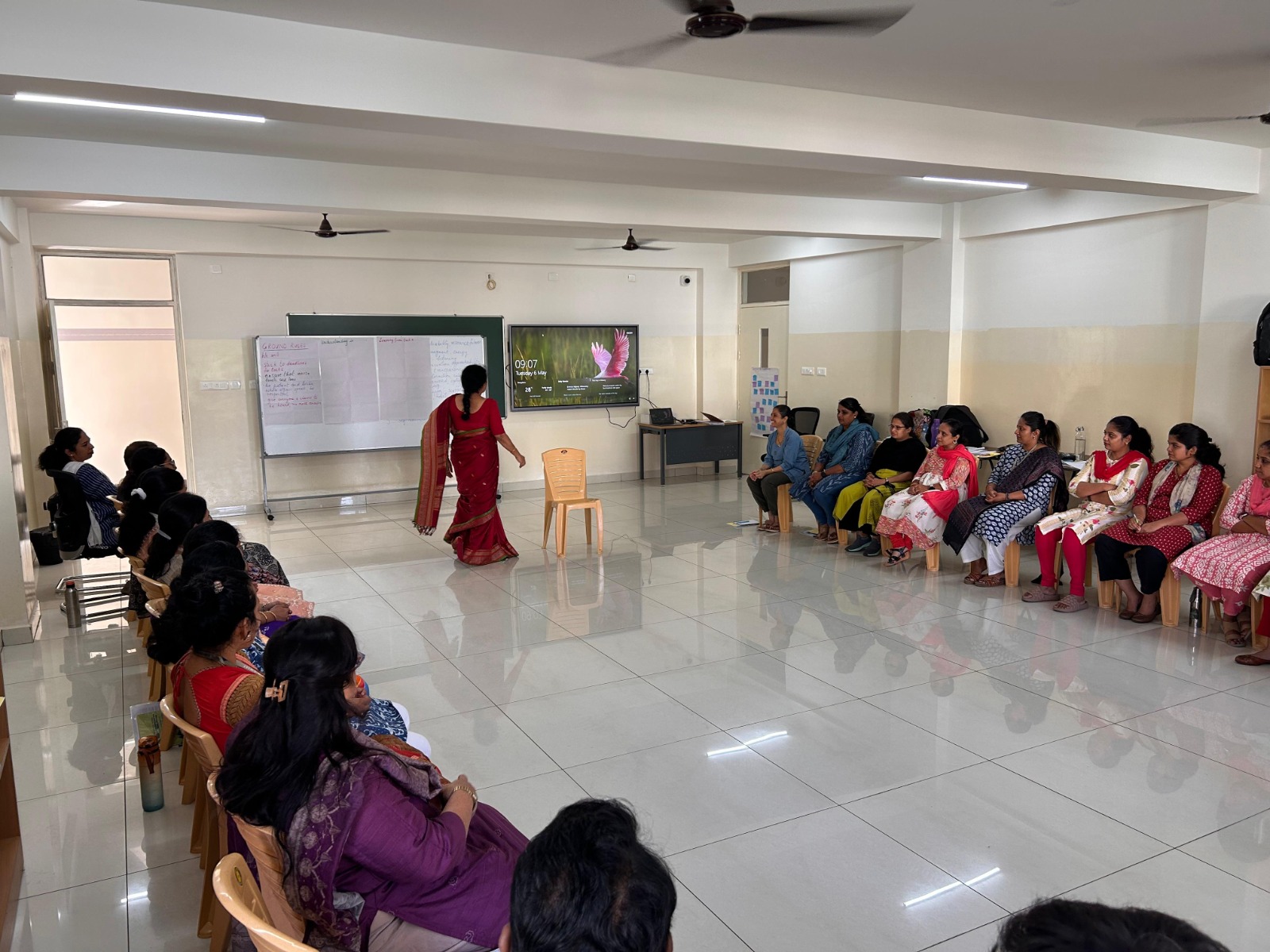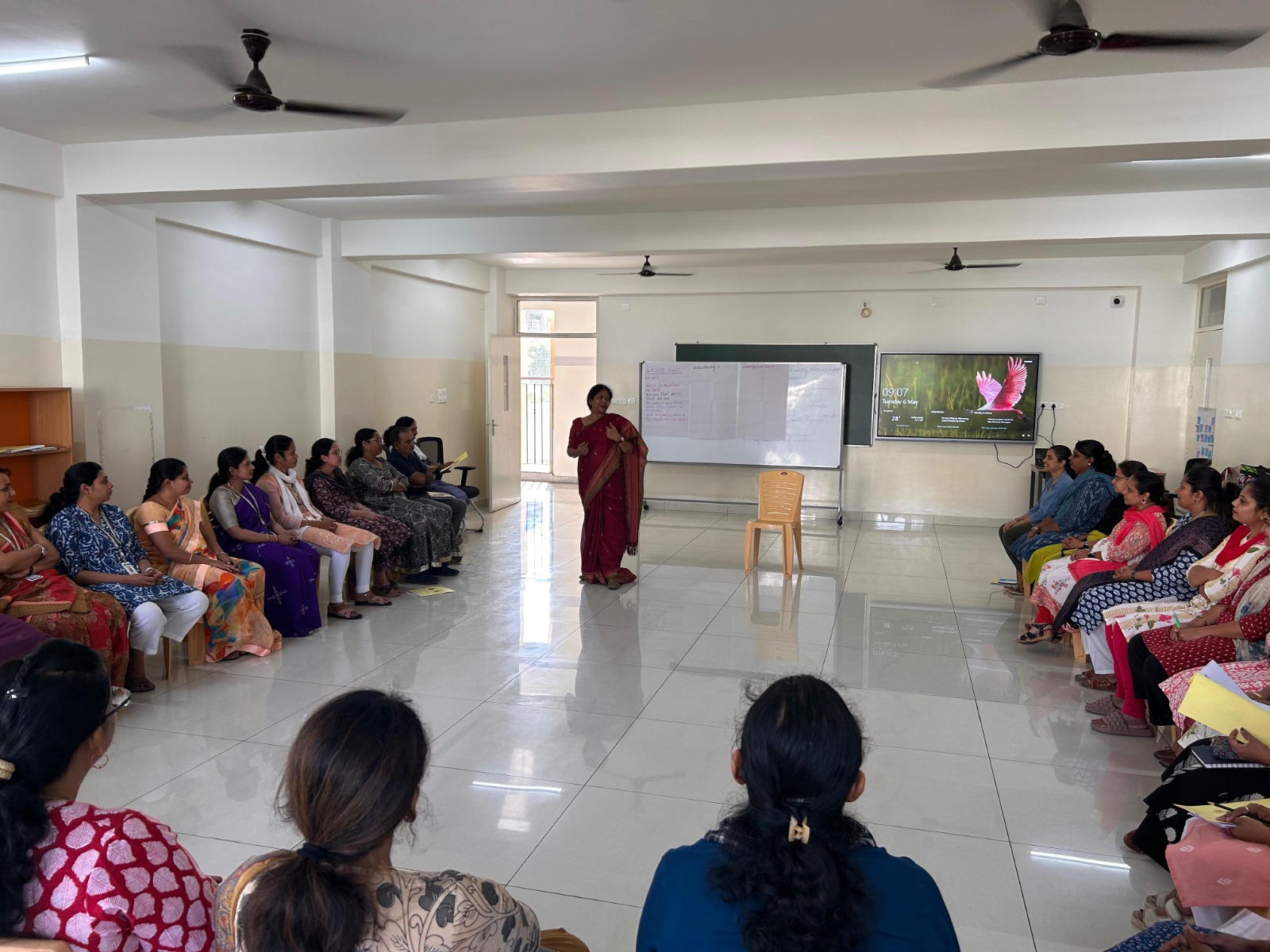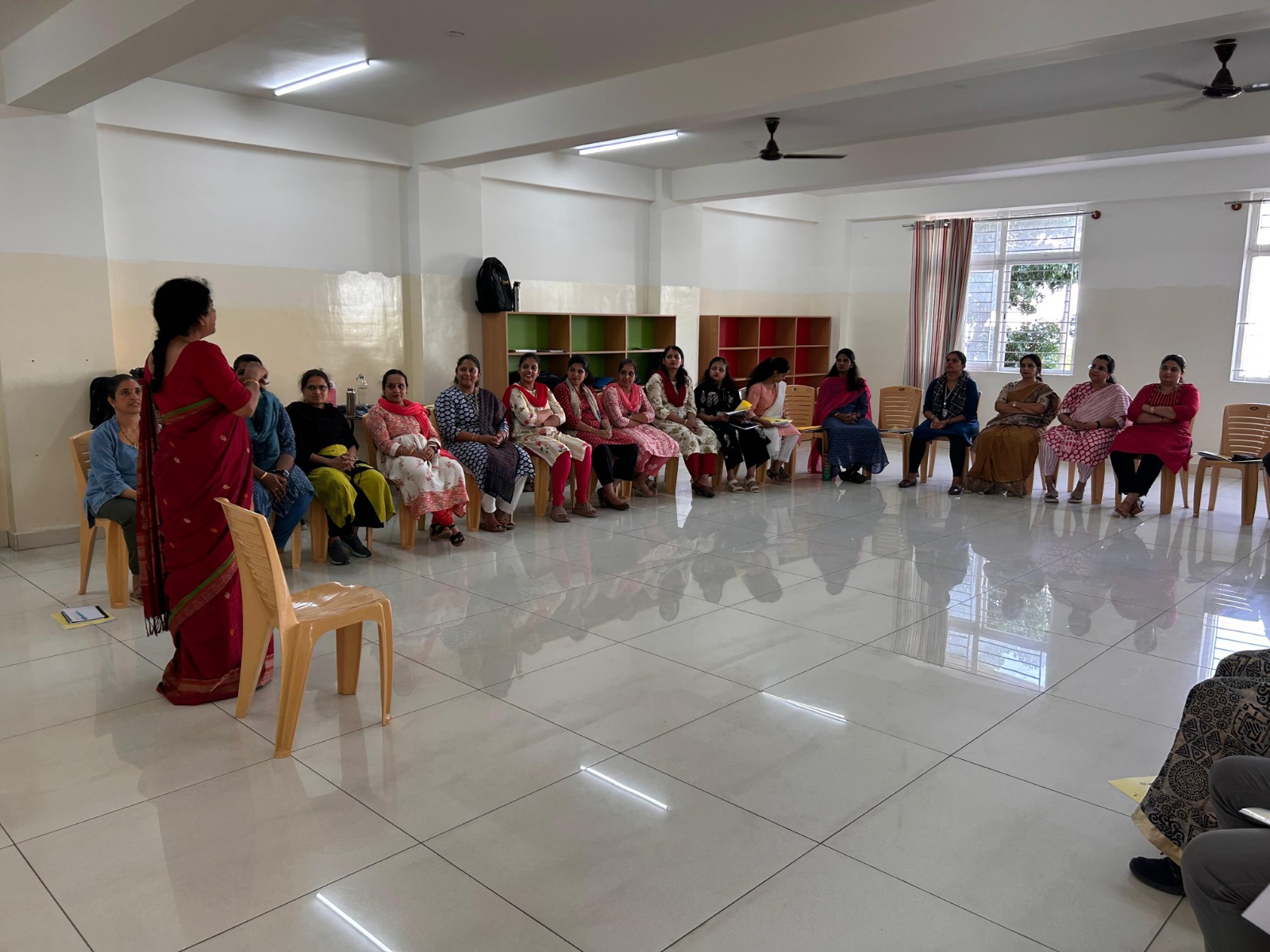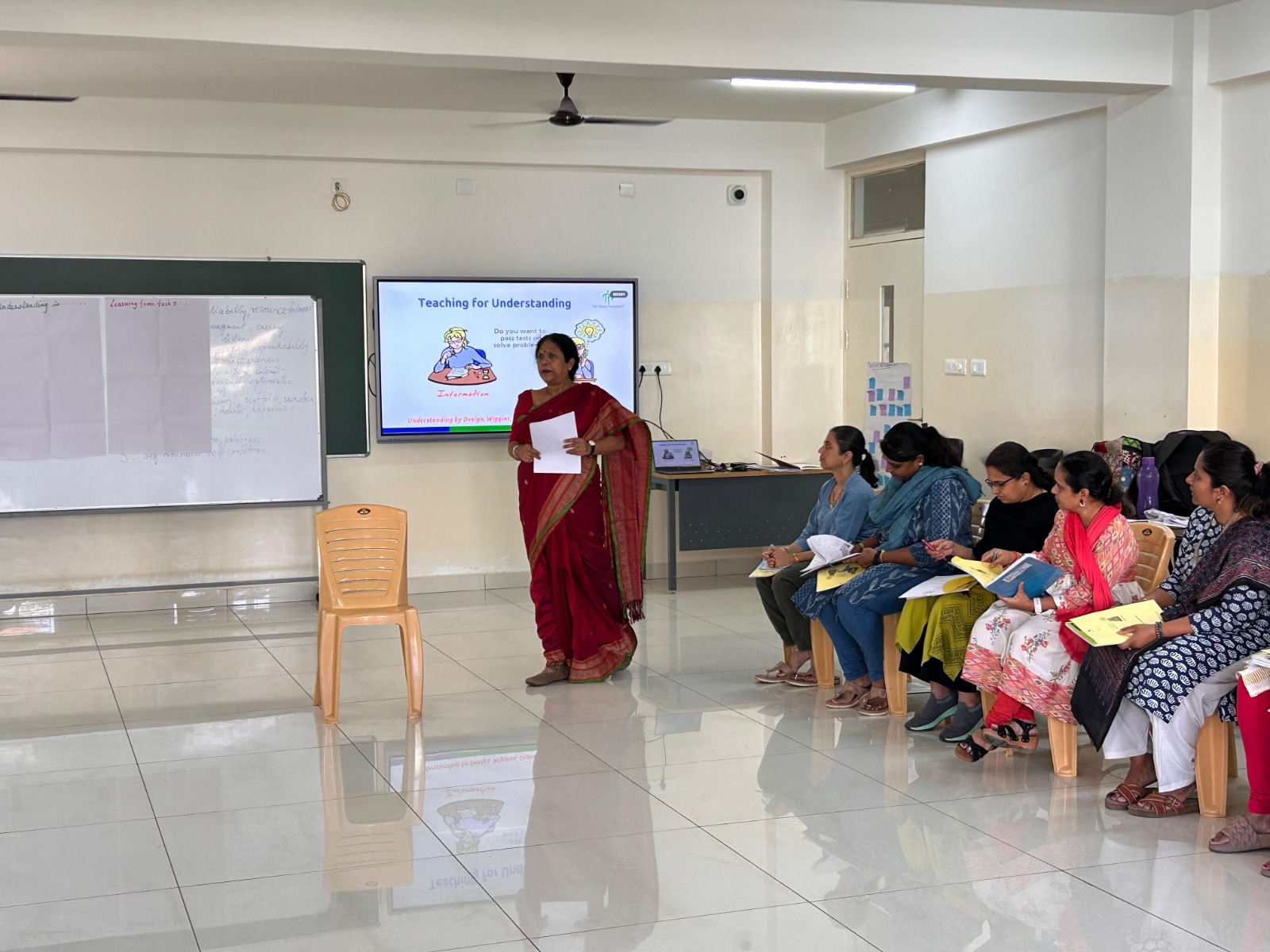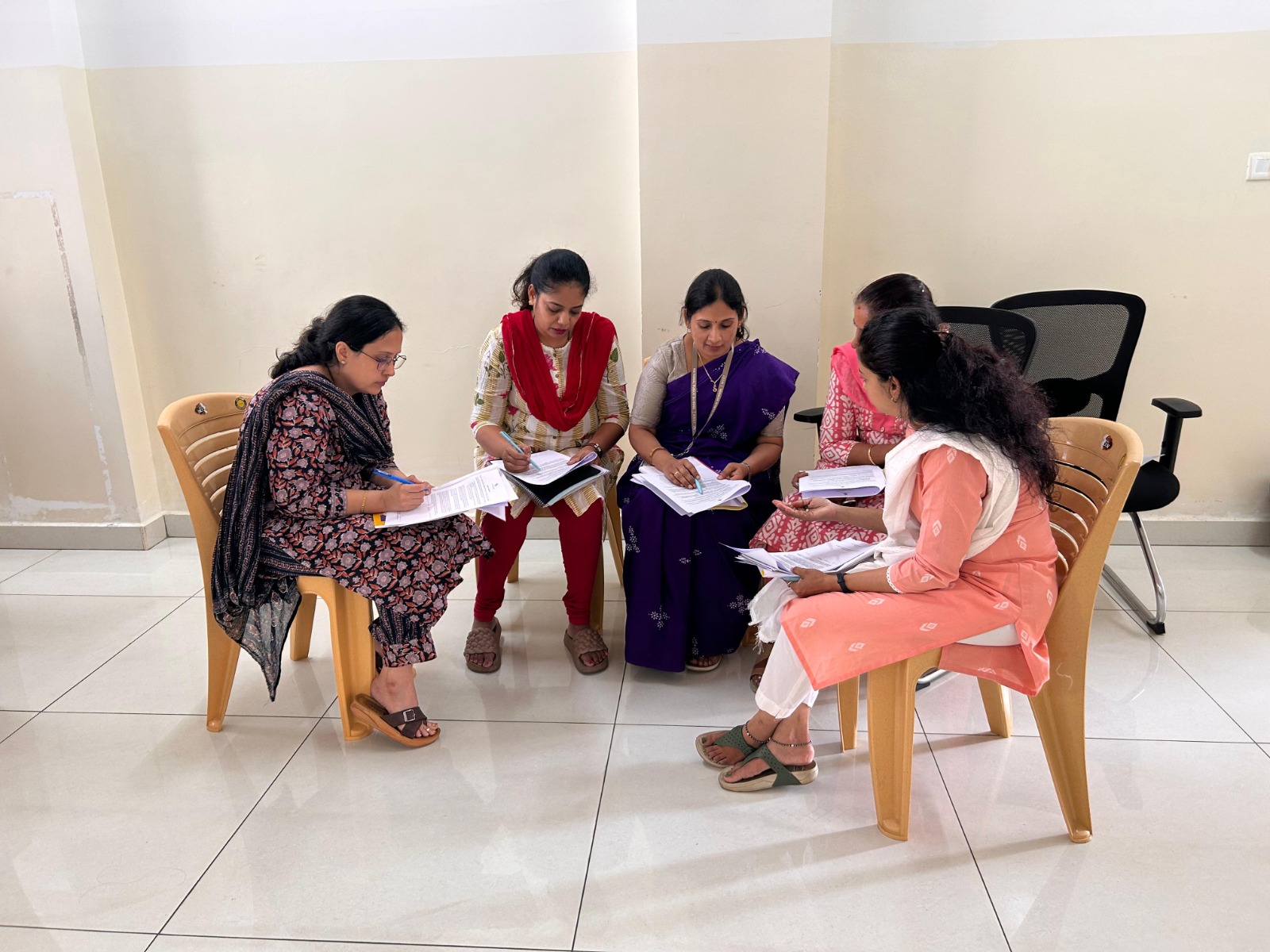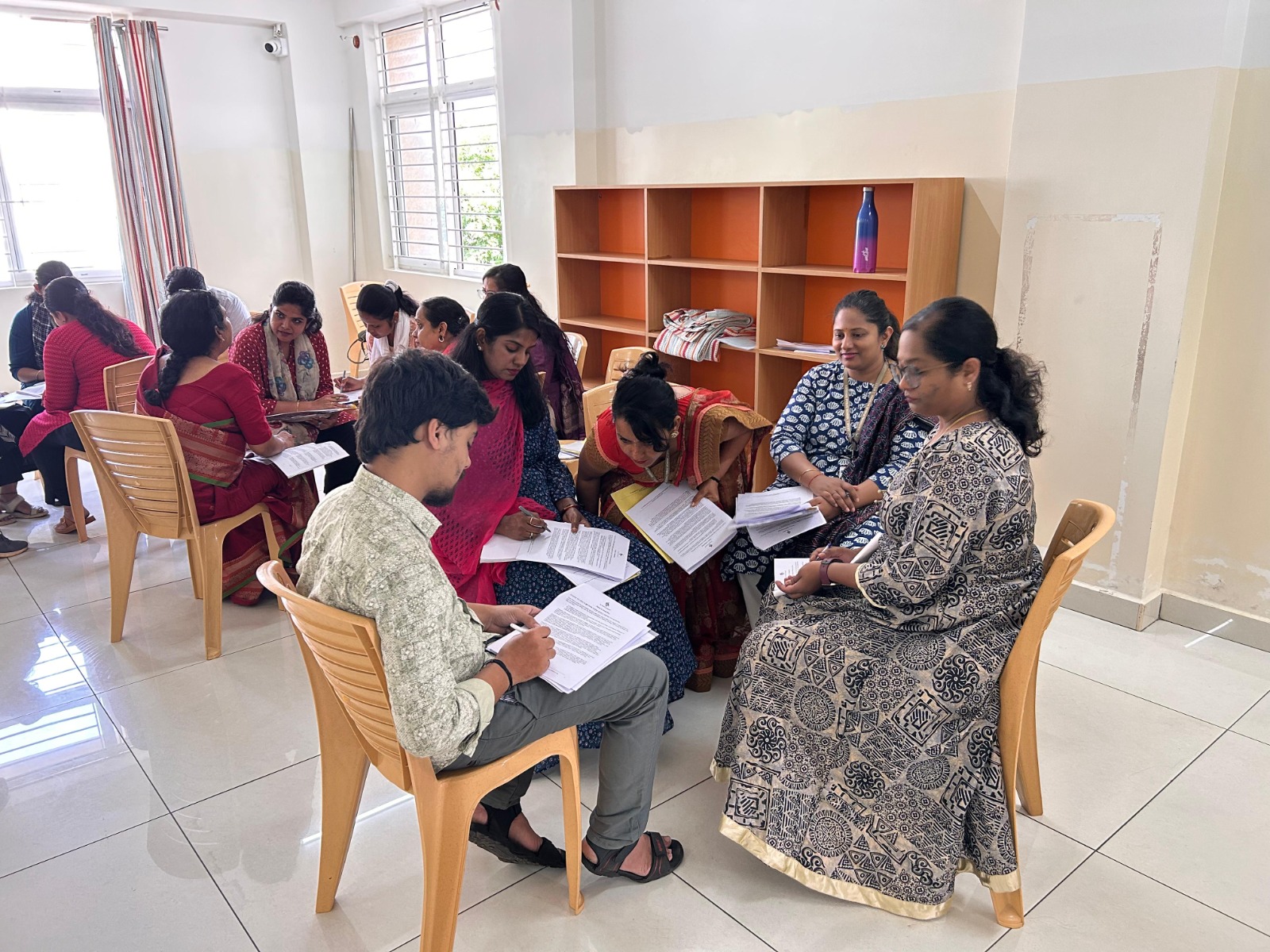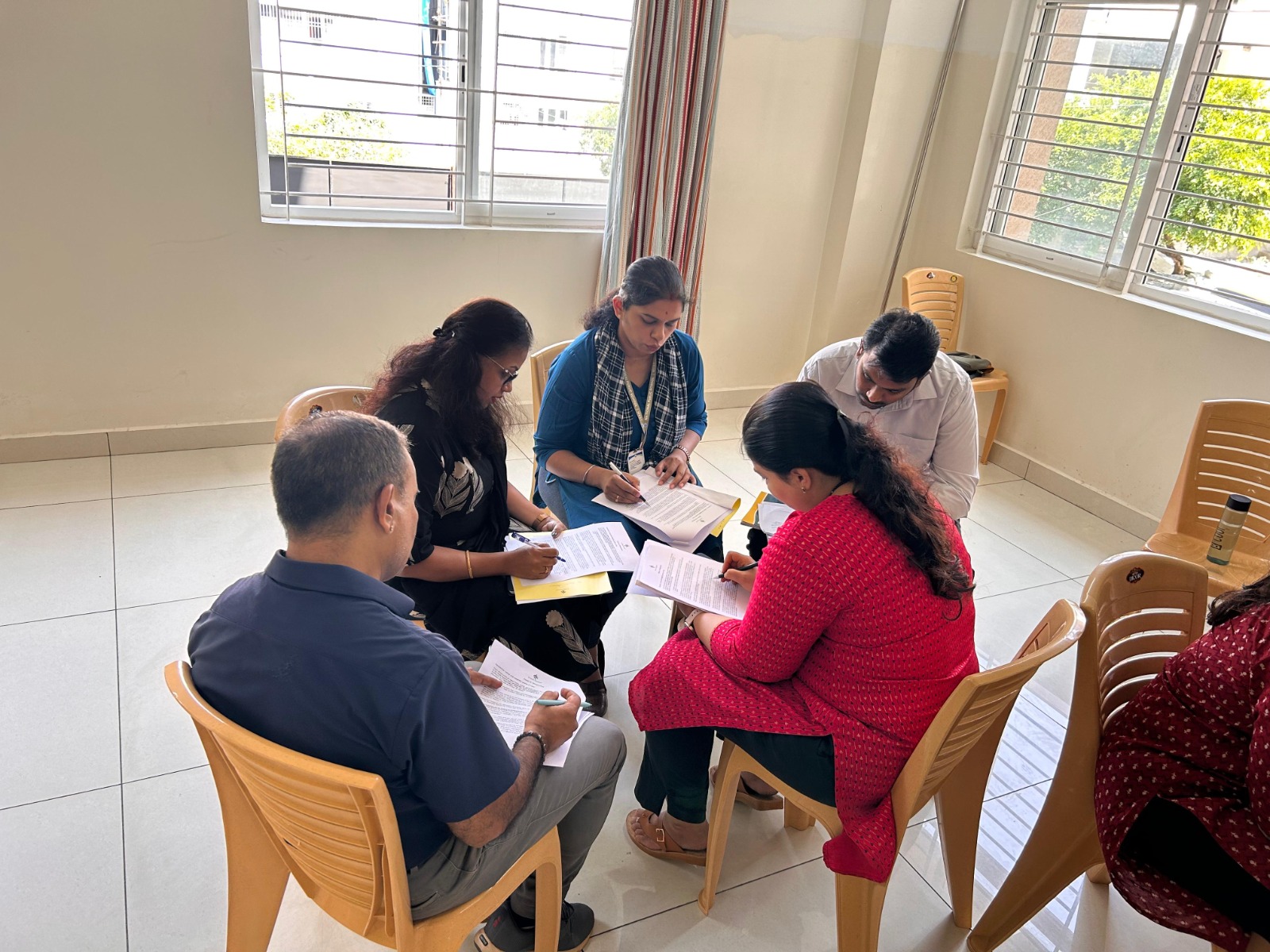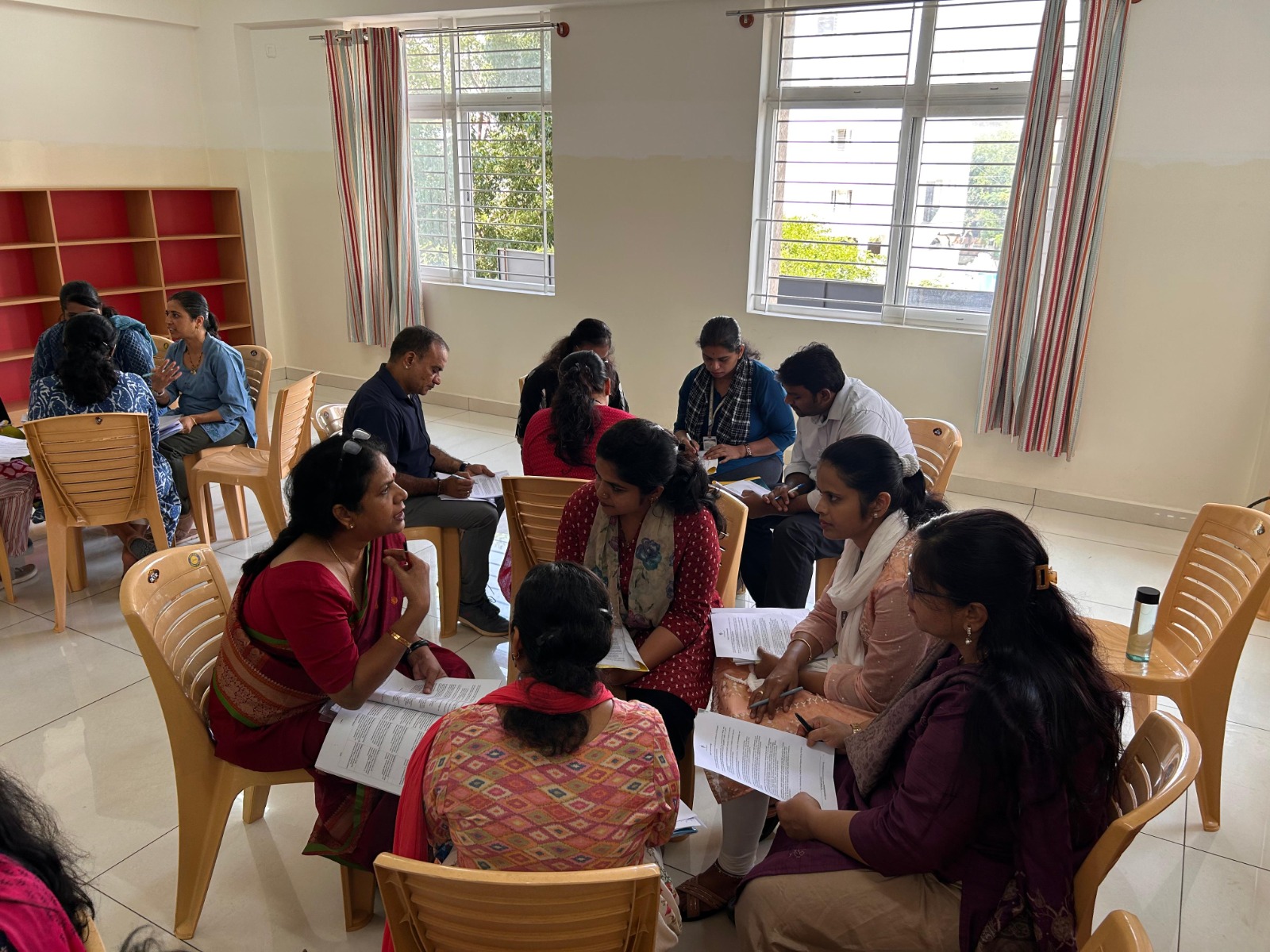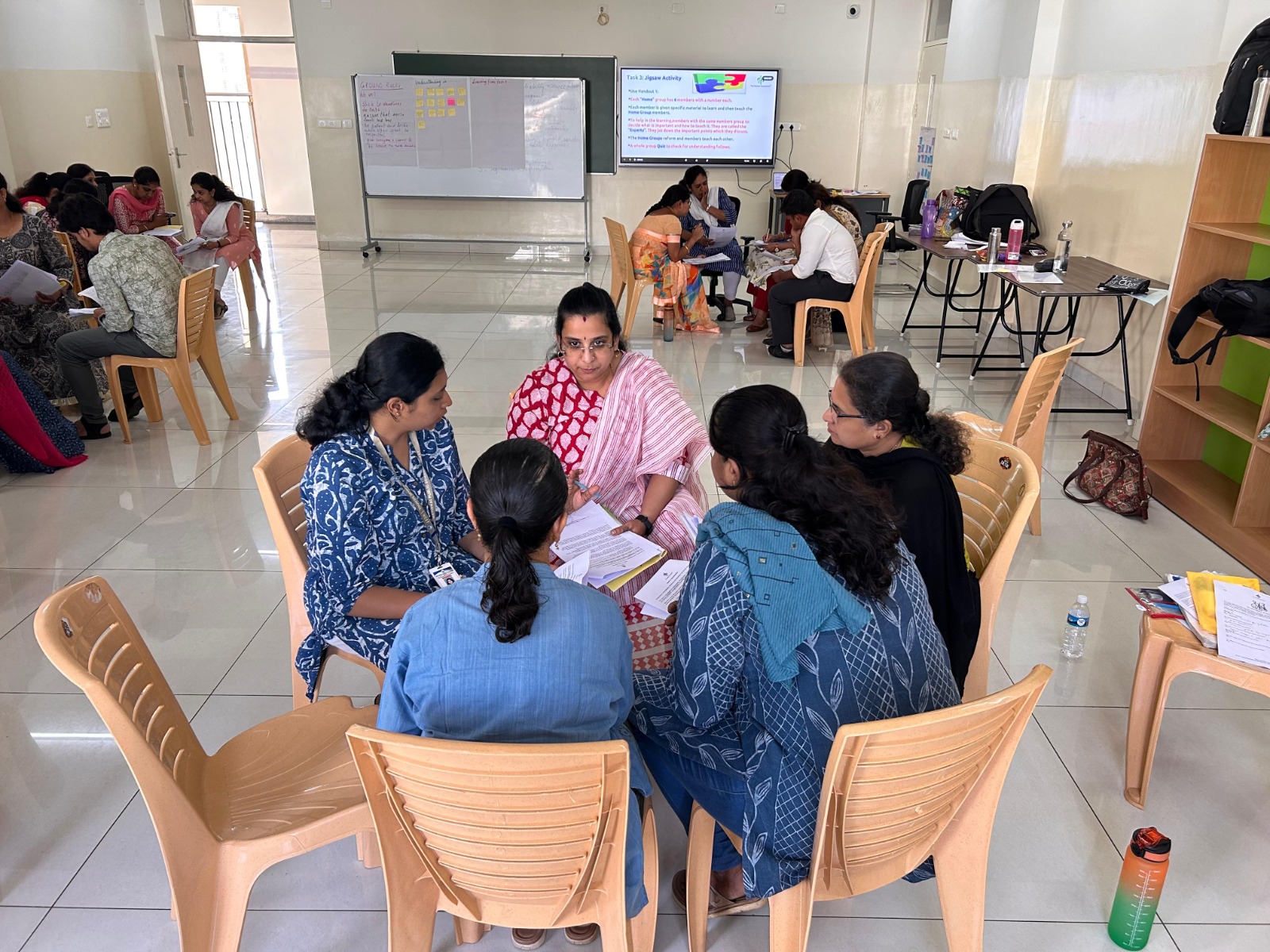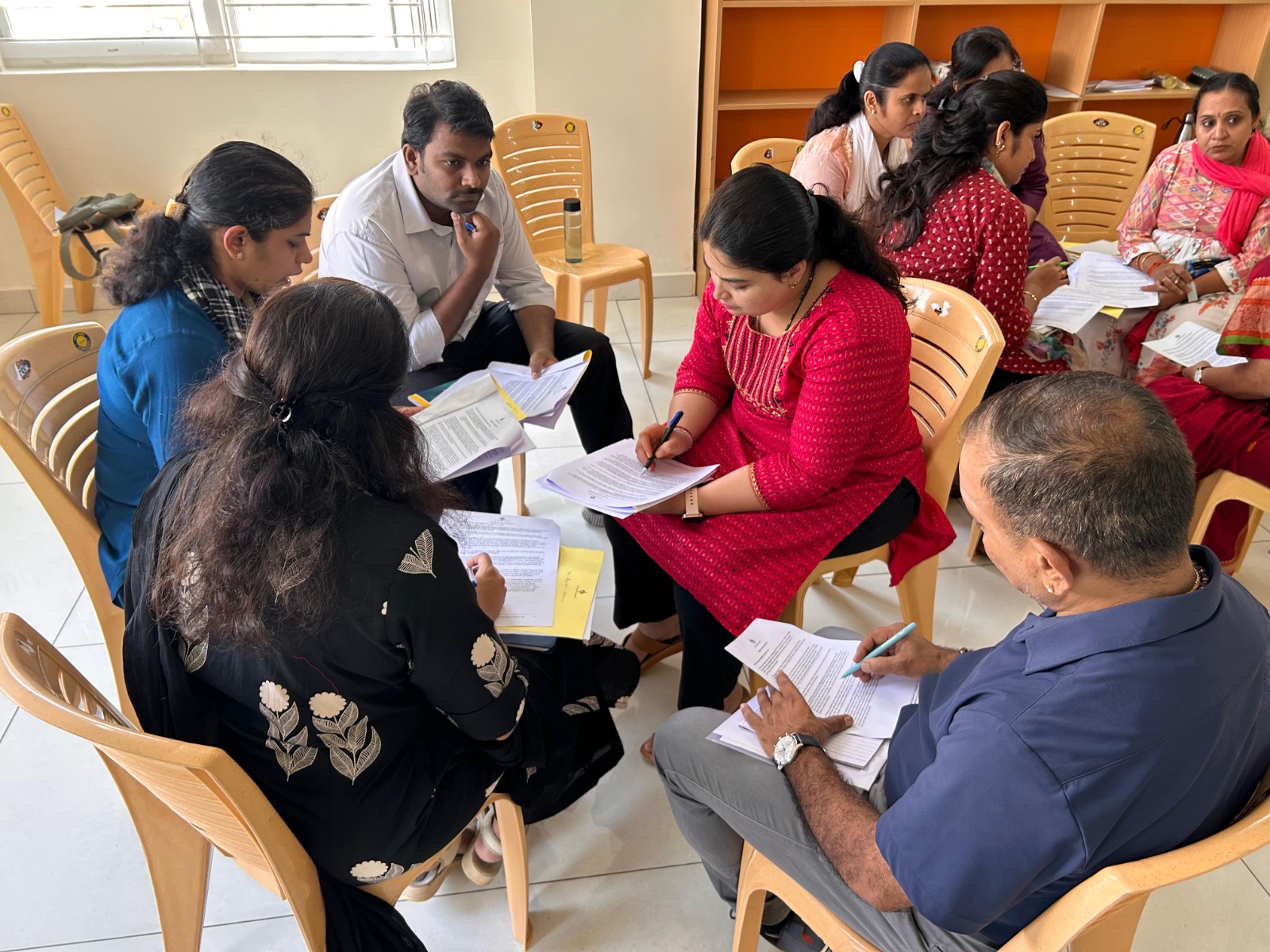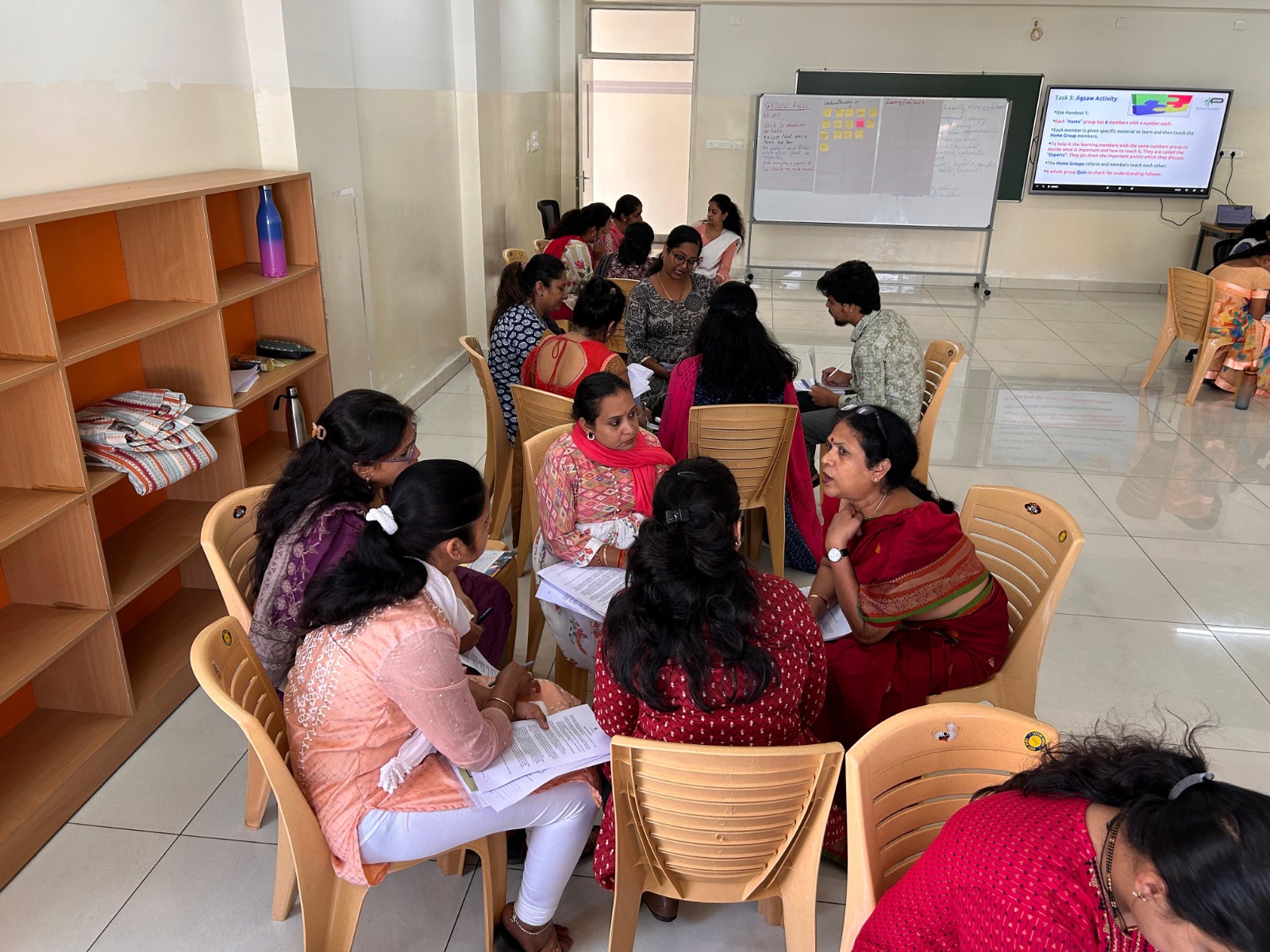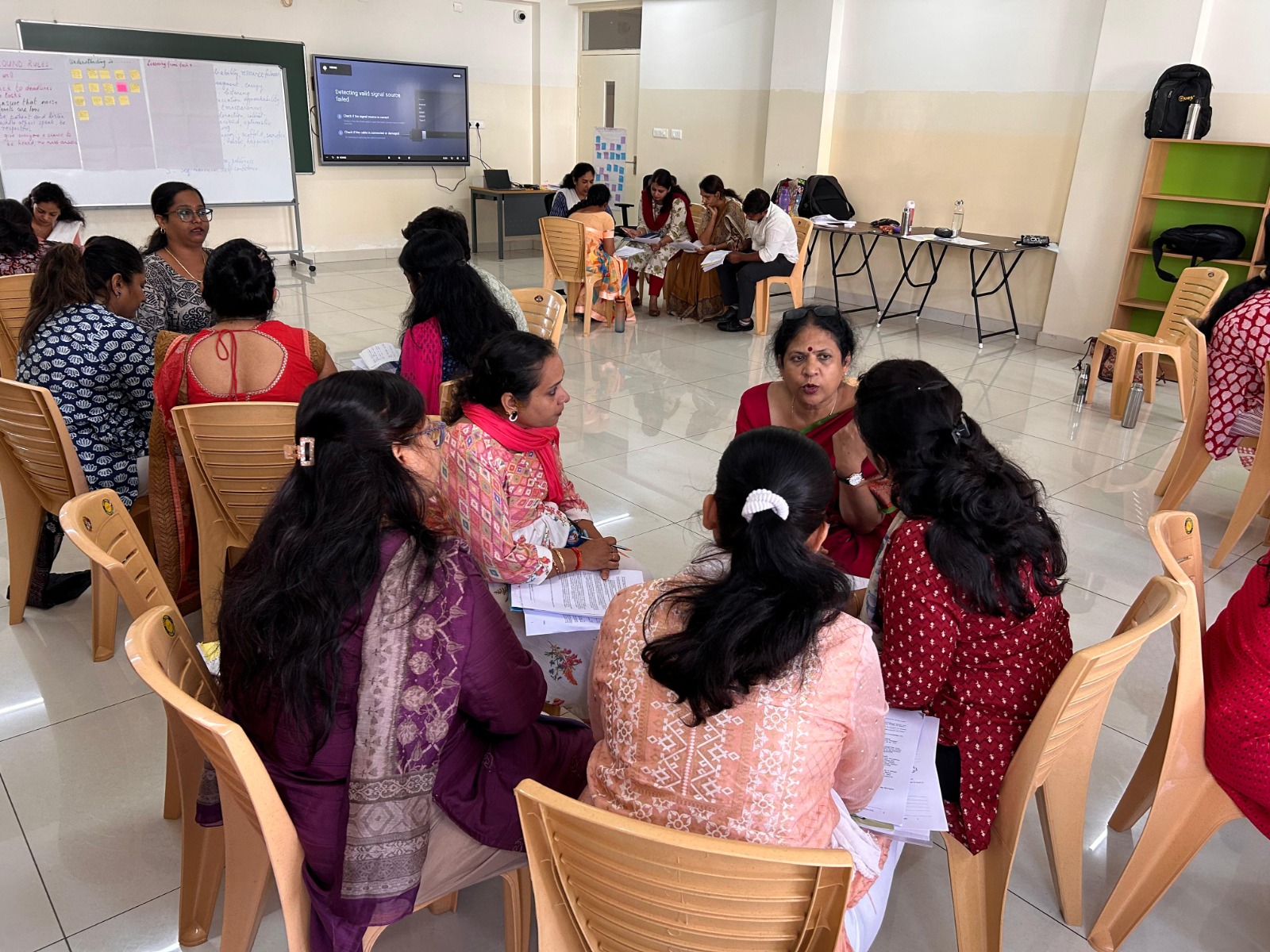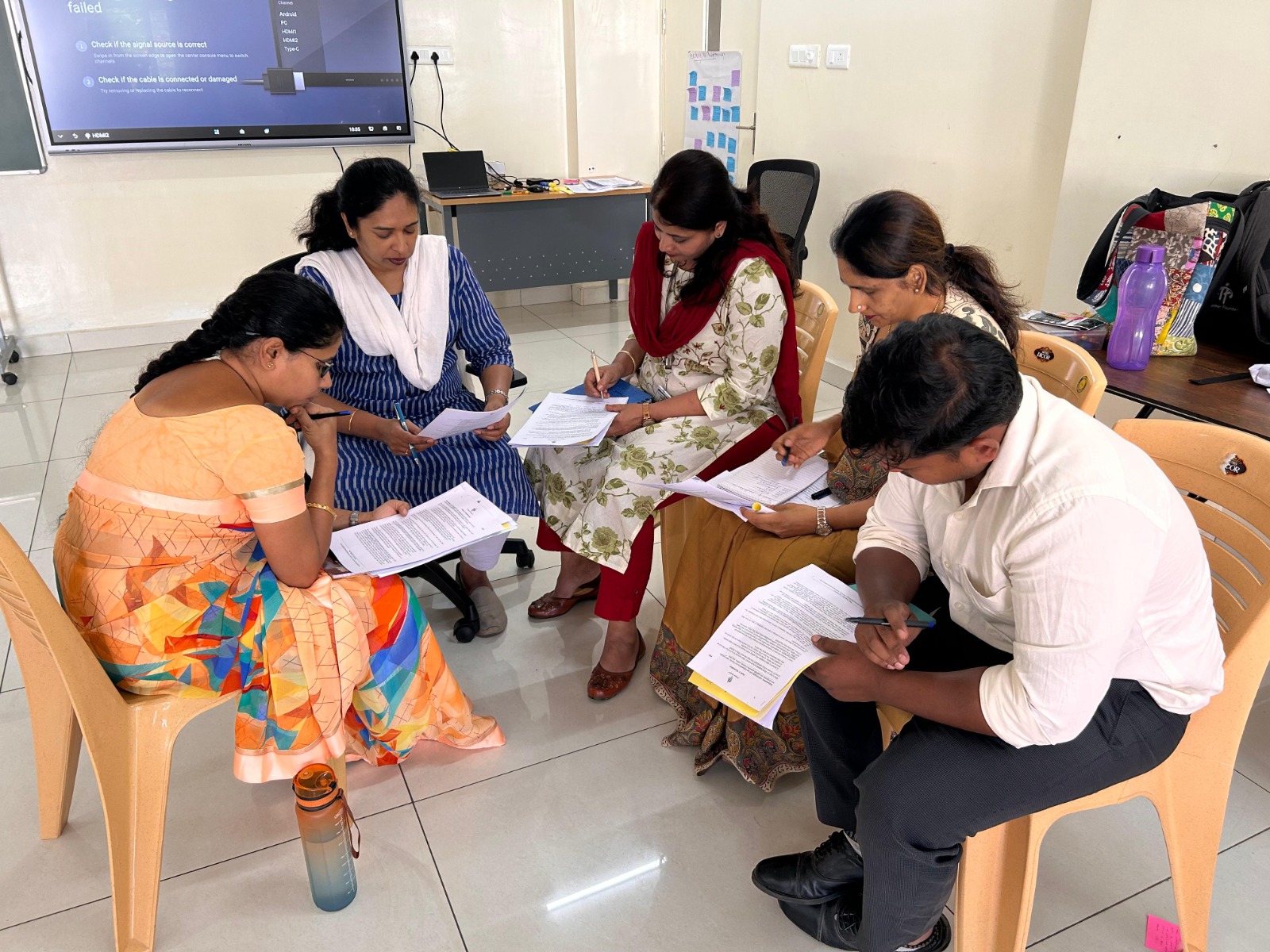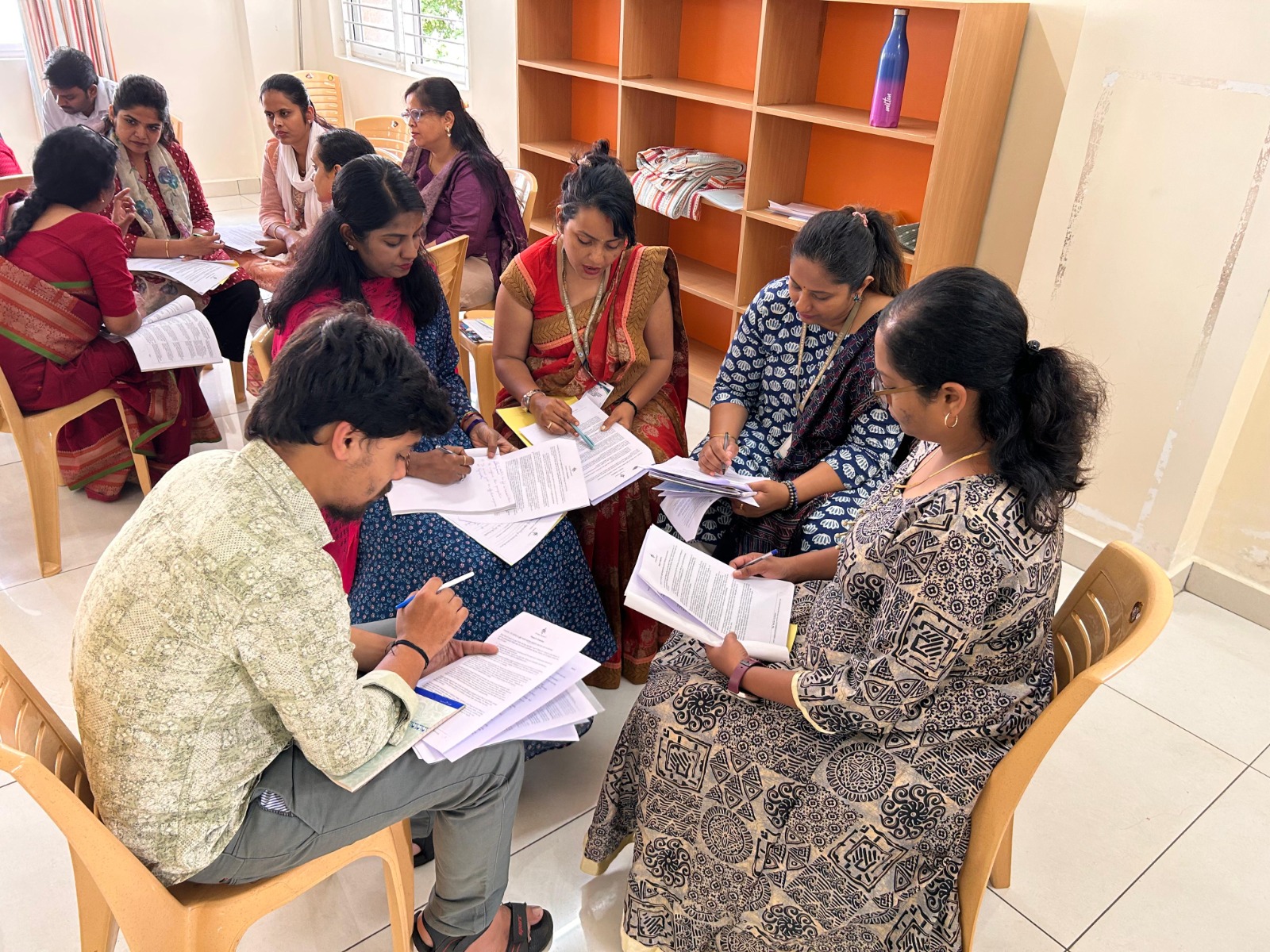Teacher’s Training Foundation
Date: 5th of May, 2025 – 7th of May, 2025
Duration: 9:00 to 4:00
Conducted by: TTF Trainers
Attended by: 30 teachers
Day:1: 05-05-2025: Teaching as Relationships: Ms. Ratan Gopinath
The session began with the ice-breaker and framing ground rules to be followed for 3 days. The objectives of the session were:
- What, why, how about relationships
- Importance of relationships
- Strategies of relationships
The key points discussed in the session:
- Characteristics of successful and unsuccessful learners
- Teachings as relationships:
- Respecting each other
- Empathy
- Needs of students
- Motivation
- Building Self-confidence
- To develop
- Active learning
- Bonding
- Why cannot relationships be adopted on daily routine:
- Time constraint
- Focus on syllabus
- Multi-task
- Biased
- Lack of strategies
- Lack of observation and communication
- Lack of parental support
- Unnoticed
- Teachers talk time must be minimum
- Insights shared by the teachers about:
- Insights gained as a teacher or learner
- Interesting thoughts about relationships as a teacher
- A question I have about building relationships
- The session was conducted with varies activities through discussion in groups and individually.
Day:2: 06-05-2025: Teaching for understanding: Ms. Chengodi Ponnaswamy
The session began with the introduction of the teachers using an adjective for themselves. The ground rules were recalled.
To “UNDERSTAND” means to use knowledge and skills in sophisticated and flexible ways.
The key points discussed in the session were:
- The understanding discussed is different form that in Bloom’s Taxanomy
- The understanding discussed is not hierarchical as in Bloom’s Taxanomy
- The 6 facets of understanding for teaching as given by Grant Wiggins and Jay Mc Tighe:
- can explain
- can interpret
- can apply
- have perspective
- can empathise
- have self-knowledge
- Some special points to know about the 6 facets are:
- deepest learning
- what is understand not how it is understood
- all 6 facets need not to be used
- still using more than on facet will help for deep understanding
- each facet can be performed at different levels
- teacher helps students understand through:
- what knowledge and skills they need?
- What activities will best develop the skills and knowledge?
- How to assess the understanding?
- Backward design model of the lesson plan
- Identify the desired results
- Determine acceptable evidences
- Plan learning experiences and instructions
- A lesson plan following backward design was made in each department and discussed
- The session was interactive with many energisers and group activities for discussion
Day:3: 07-05-2025: The Teacher as a Reflective Practitioner: Ms. Krithika Mahajan
The session began with self-reflective questions as part of introduction. The ground rules were recalled.
Reflective thinking or reflective practice is a process of consciously evaluating one’s experience, actions and knowledge to learn from themselves to future tasks
The key points discussed in the session were:
- What is reflection (not as scientific term)
- Two types of reflection-for-action:
- Reflection-in-Action (while)
- Reflection-on-Action (post)
- After the lesson:
- What did I do well?
- What changes I intend to make?
- Did I give clear instructions?
- Did I approach all the students or groups?
- What stops from becoming reflective practitioner?
- It’s time consuming
- I don’t remember what I did
- It’s so complex
- I am not comfortable analysing myself
- What all should I actually reflect on?
- Reflective teaching process:
- How does reflection take place?
- The event itself
- Recollection of event
- Review and response to the event
- How does reflection take place?
- Tools to recollect experiences:
- Reflection journals
- Audio/ video recordings
- Self-Reports
- Collaborative diary keeping
- The guided reflection protocol
- The critical incidents protocol
- The session was based on self-reflection and discussion individually in group with energisers

